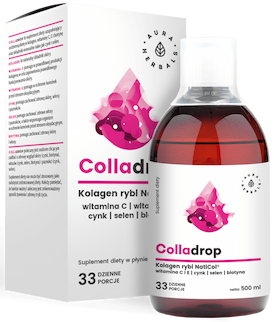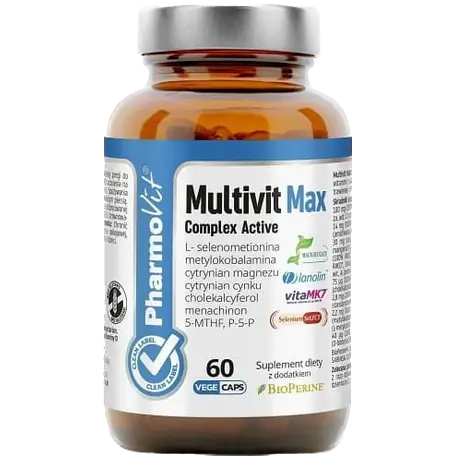Copper in the body: properties, deficiency symptoms, supplements
Together with the pharmacist, we break down the copper.


Learn more about our editorial process
.

Learn more about our editorial process
.

Learn more about our editorial process
.

Learn more about our editorial process
.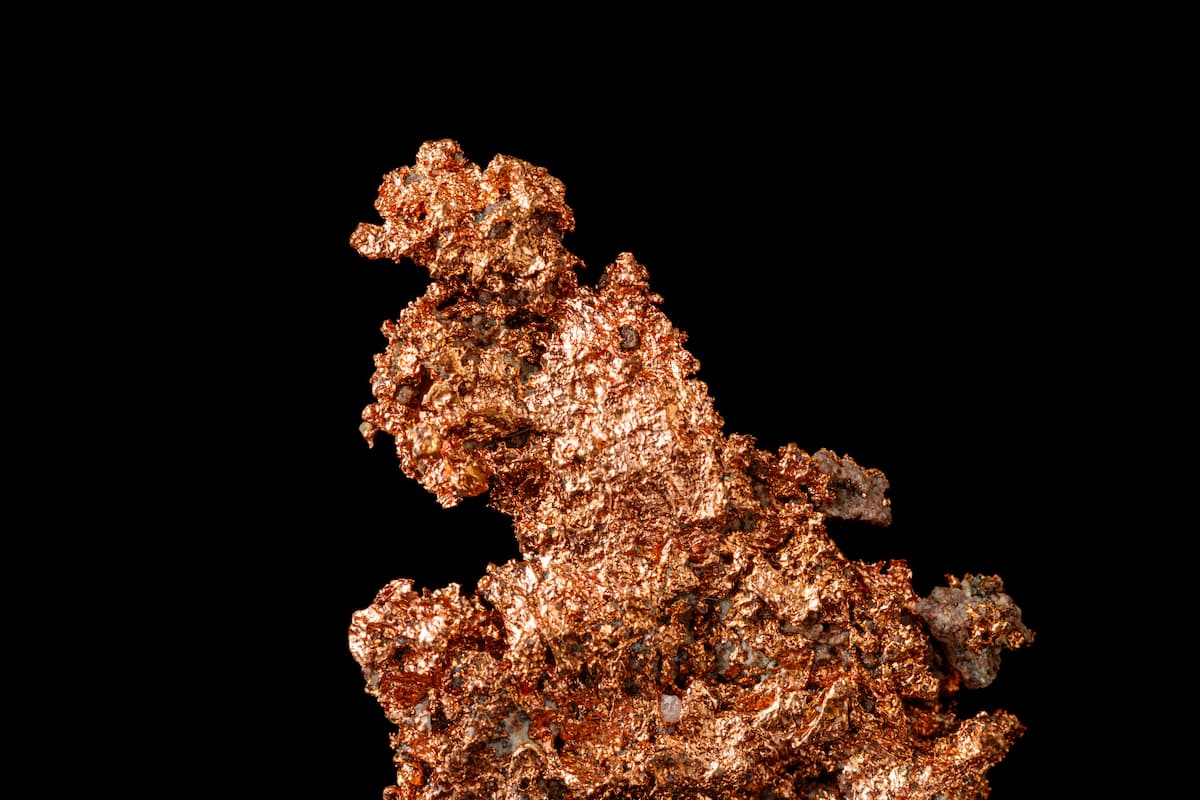
Why you can trust us
Articles on Natu.Care are written based on scientific research, data from government websites and other reliable sources. The texts are written in cooperation with doctors, nutritionists and other health and beauty experts. Articles are reviewed before publication and during significant updates.
.Learn more about our editorial process
.Information about advertisements
Content on Natu.Care may contain links to products from the sale of which we may receive a commission. When creating content, we adhere to high editorial standards and take care to be objective about the products discussed. The presence of affiliate links is not dictated by our partners, and we select the products we review ourselves completely independently.
.Learn more about our terms and Conditions
.When you hear about metals in the body, you probably think of harmful heavy metals like lead or mercury. However, not all metals harm us - some we need. An example? Copper.
This important mineral affects most processes in the body. It is also valued in the cosmetic industry. Its deficiency is harmful, as is ... excess.
.
From this article you will learn:
- What is copper and what health properties it has.
- What is copper?
- Whether it's worth supplementing with copper.
- What to eat to keep your body healthy.
- What to eat to look after healthy copper levels.
- What to eat to look after healthy copper levels.
- What are the symptoms of copper deficiency and excess in the body.
- What are the symptoms of copper deficiency and excess in the body?
- Who should watch out for copper. .

Odkryj, co dla Twojej urody może zrobić Natu.Care Glow Stories
Skóra, włosy, paznokcie: Glow Stories
Wesprzyj prawidłowy stan skóry, włosów i paznokci i ochroń komórki przed stresem oksydacyjnym!
Sprawdź cenę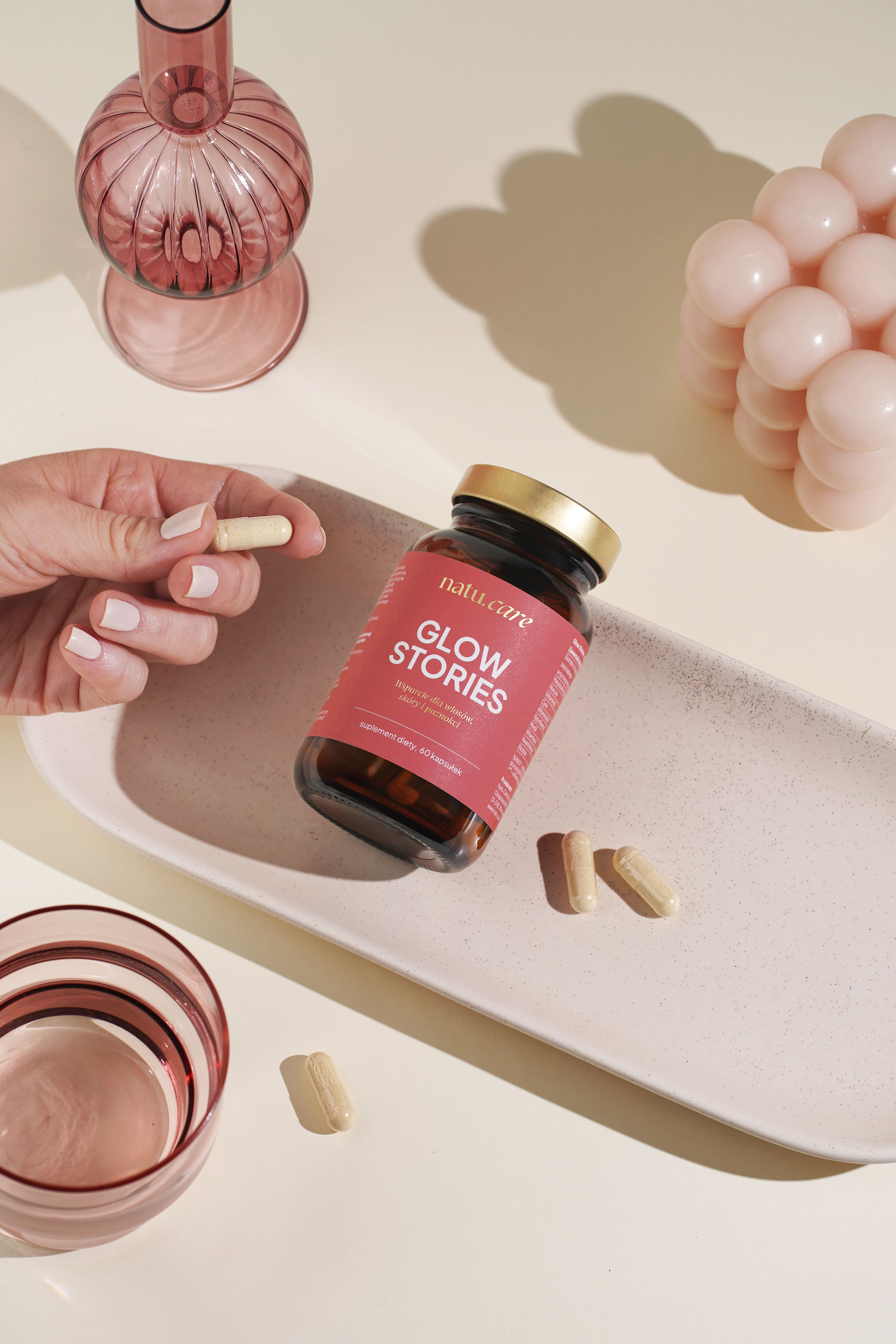
Glow Stories to formuła aktywnych składników, które zostały starannie dobrane wedle najnowszych badań naukowych. Znajdziesz w nich biotynę, cynk i miedź pielęgnujące zdrowie włosów i promiennej cery. Ponadto cynk jest odpowiedzialny także za zachowanie zdrowych paznokci. Mądra suplementacja zadba o Twoje piękno od środka.Julia Skrajda, dietetyk kliniczny
See also:
What is copper?
.
Copper is a chemical element assigned to the transition metal group. It is designated by the symbol Cu. In its natural form it occurs as an ore or mineral. Mineral copper is the most primary and pure form of this element. It is also called native copper.
In the human body, it is one of the trace minerals necessary for proper functioning and healthand.
Interesting fact
.The Latin name for copper - cuprum - comes from Cyprus, where copper was mined in ancient times. At that time it was called cyprum aes, which can be translated as Cyprus metal.
Properties of copper in the body
.
One of copper's main roles is to participate in energy production, metabolism iron and connective tissue synthesis. It also influences the formation of blood vessels (specifically capillaries), which is indirectly important, for example, in wound healingand.
.
Copper combines with various amino acids to form enzyme-catalysts. These give a signal to the body to undertake many processes. Some initiate the production of energy needed for biochemical processes, others metabolise the melanin necessary for pigmentation, and still others help form the bonds collagen and elastinand. And that's not all.
Copper, although a micronutrient, has many important functions in the body - one of the most important being the formation of erythrocytes (red blood cells) and taking part in the transport and absorption of iron..
 .
.
Aleksandra Cudna-Bartnicka Clinical nutritionist
Interesting fact
.About one-third of the copper in your body is found in your bones and musclesand.
Blood system
.
Copper affects blood clotting and the formation of new blood vessels. It also helps to maintain normal heart physiology. In duo with iron, it supports the formation of new red blood cellsand.
Although this element was previously underestimated, a growing body of research now links copper deficiency to an increased risk of heart disease, such as ischaemic heart disease .
.
Copper deficiency may also be linked to other cardiovascular ailments, elevated blood pressure and even anemia .
.
Copper is involved in the synthesis of haemoglobin. Its deficiency can lead to anaemia. Copper deficiency anaemia is treated with oral or intravenous copper replacement in the form of copper gluconate, copper sulphate or copper chloride..
 .
.
Ilona Krzak Master of Pharmacy
.
Hematological symptoms are fully reversible with copper supplementation over a period of 4 to 12 weeks, adds pharmacist.
Neural system
.
Copper is essential for both normal brain development and function. Its molecules have signalling and regulatory functions for biochemical processes. It plays an important role in the formation of neurotransmitters, the compounds that carry signals between neuronsand.
Copper is particularly important during fetal life. Insufficient supply at this stage can lead to brain malformations. In adults, impaired copper metabolism may be linked to nervous system diseases such as Alzheimer's disease, amyotrophic lateral sclerosis or Parkinson's diseaseand.
A study from 2021 suggests that higher levels of copper in the body may be a factor in reducing the risk of Alzheimer's disease . However, other studies suggest that high amounts of copper may have the opposite effect - increasing the risk of this disease . As you can see, the golden rule works here too.
.
Excess copper leads to Wilson's disease..
 .
.
Ilona Krzak Master of Pharmacy
.
Immune system
.
Copper is important for the functioning of the immune system. Thanks to its antibacterial properties, it helps to inhibit the growth of microorganisms. Correct copper concentrations enable the body to mount an effective immune response when exposed to pathogens (viruses, bacteria and toxins).
Copper is an important component of the immune system.
This is because this precious element influences the activity of T lymphocytesand. In short, copper makes you sick less often and heals infections faster.
See also:
.
Bone system
.
Copper is needed to maintain healthy bones as it affects collagen synthesis. Its fibres form the skeleton of bone tissue on which calcium and other minerals are deposited. Copper is also essential for bone matrix synthesis and may also play an important role in the treatment of fracturesand.
A number of studies have shown that deficiencies in trace elements, such as copper, can promote the development of osteoporosis. In 2015, researchers found that postmenopausal women with osteoporosis had significantly lower copper levels than the average level in the populationand.
See also:
.
Effects on beauty
.
Copper is one of the enzyme components responsible for fighting free radicals and helping to protect cells from their destructive effects. This affects the health of the whole body, but also the appearance of your skin. Copper can counteract the formation of wrinklesand.
Copper as a cofactor is involved in collagen synthesis. It forms connective and bone tissue through cross-links in collagen and elastin..
 .
.
Ilona Krzak Master of Pharmacy
Copper will help you keep your youthfulness not only on your face. By promoting melanin metabolism, it has the effect of delaying the greying of hair. If you don't want silver on your head, rely on copper.
See also:
Male issues
A study conducted between 2001 and 2004 found that men who consumed more copper, iron, zinc and selenium were significantly less likely to have erectile problemsand.
Best form of copper
.
In dietary supplements you will most often encounter copper citrate or copper gluconate. The first form is the most popular, but it is gluconate that is considered more valuable and better absorbed into the bodyand.
Gluconate is the organic form of copper. And organic forms are better absorbed by the body than inorganic forms..
 .
.
Ilona Krzak Master of Pharmacy
.
Best copper supplements - ranking
.
Pure copper supplementation is unlikely to be necessary for you - you will get most of this valuable mineral into your body with your food. However, if you want to supplement your diet with an extra dose of this mineral, you can choose multi-ingredient supplements containing added copper.
Choose from multivitamins, which will take care of your body's overall health, or dietary supplements targeting a specific action - such as strengthening hair.
Criteria for selection:
.
- Easily absorbed form of copper - why take a supplement that will fly through the body without leaving a trace in it?
- .
- Daily serving - the best formulations contain approximately 1 mg of copper per daily serving.
- Additional active ingredients - valuable nutrients to complement the effects of copper.
Biotebal Plus skin, hair, nails
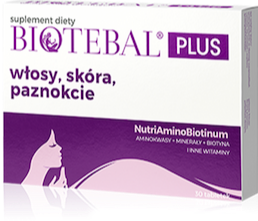
- Active ingredients: biotin, field horsetail herb extract, L-cysteine, L-methionine, zinc, iron, vitamin C, vitamin E, niacin (vitamin B3), copper, vitamin B6, vitamin B2 (riboflavin), folic acid, selenium .
- Form: capsules .
- Dose: 1 capsule per day .
- Sufficient for: 30 days .
Product description
A complex formula based on 14 active ingredients in the form of vitamins, mineralsós and an extract from field horsetail, whichós a source of silicon. Biotebal Plus contains a large portion of biotin, whichós effective in strengthening hair, giving it shine and preventing excessive hair loss.
.Thanks to its many active ingredients, the product helps firm the skinód of the face and strengthens the nail plate.
Pros and cons
A complex formula based on 14 active ingredients in the form of vitamins, mineralsós and an extract from field horsetail, whichós a source of silicon. Biotebal Plus contains a large portion of biotin, whichós effective in strengthening hair, giving it shine and preventing excessive hair loss.
.Thanks to its many active ingredients, the product helps firm the skinód of the face and strengthens the nail plate.
Additional information
A complex formula based on 14 active ingredients in the form of vitamins, mineralsós and an extract from field horsetail, whichós a source of silicon. Biotebal Plus contains a large portion of biotin, whichós effective in strengthening hair, giving it shine and preventing excessive hair loss.
.Thanks to its many active ingredients, the product helps firm the skinód of the face and strengthens the nail plate.
Expert opinion
A complex formula based on 14 active ingredients in the form of vitamins, mineralsós and an extract from field horsetail, whichós a source of silicon. Biotebal Plus contains a large portion of biotin, whichós effective in strengthening hair, giving it shine and preventing excessive hair loss.
.Thanks to its many active ingredients, the product helps firm the skinód of the face and strengthens the nail plate.
Colladrop, NatiCol® fish collagen + vitamin C, liquid 500 ml
Product description
Collagen with added vitamin C, zinc, potassium selenium, vitamin E and biotin. The formula can effectively support beauty and immunity.
Pros and cons
Collagen with added vitamin C, zinc, potassium selenium, vitamin E and biotin. The formula can effectively support beauty and immunity.
Additional information
Collagen with added vitamin C, zinc, potassium selenium, vitamin E and biotin. The formula can effectively support beauty and immunity.
User feedback
Collagen with added vitamin C, zinc, potassium selenium, vitamin E and biotin. The formula can effectively support beauty and immunity.
Product description
Pharmovit Multivit Max Complex Active is a dietary supplement containing 13 vitamins and 8 minerals
. In addition, the preparation has been enriched with two plant extracts, which contributes to the effective support of the organism.Pharmovit Multivit Max Complex Active is a dietary supplement with a beneficial effect on the immune system.
The supplement from Pharmovit has a beneficial effect on the immune, circulatory and nervous systems. It is recommended for people with deficiencies (such as vegetarians and vegans), seniors (whose bodies have a harder time absorbing nutrients) and athletes with active lifestyles (due to an increased need for nutrients).
Provided by Pharmovit, the supplement has a beneficial effect on the immune, circulatory and nervous systems.
Pros and cons
Pharmovit Multivit Max Complex Active is a dietary supplement containing 13 vitamins and 8 minerals
. In addition, the preparation has been enriched with two plant extracts, which contributes to the effective support of the organism.Pharmovit Multivit Max Complex Active is a dietary supplement with a beneficial effect on the immune system.
The supplement from Pharmovit has a beneficial effect on the immune, circulatory and nervous systems. It is recommended for people with deficiencies (such as vegetarians and vegans), seniors (whose bodies have a harder time absorbing nutrients) and athletes with active lifestyles (due to an increased need for nutrients).
Provided by Pharmovit, the supplement has a beneficial effect on the immune, circulatory and nervous systems.
Additional information
Pharmovit Multivit Max Complex Active is a dietary supplement containing 13 vitamins and 8 minerals
. In addition, the preparation has been enriched with two plant extracts, which contributes to the effective support of the organism.Pharmovit Multivit Max Complex Active is a dietary supplement with a beneficial effect on the immune system.
The supplement from Pharmovit has a beneficial effect on the immune, circulatory and nervous systems. It is recommended for people with deficiencies (such as vegetarians and vegans), seniors (whose bodies have a harder time absorbing nutrients) and athletes with active lifestyles (due to an increased need for nutrients).
Provided by Pharmovit, the supplement has a beneficial effect on the immune, circulatory and nervous systems.
Effects of copper supplementation
.
Most people are able to get the necessary amount of copper in their diet and do not need to supplement. However, those at risk of copper deficiency are, for example, people taking long-term zinc, suffering from malabsorption, or following bariatric surgeryand.
By taking copper supplements, you will positively impact the cardiovascular system. Copper is involved in the production of red blood cells and helps to keep blood vessels, nerves, the immune system and the skeletal system healthy. Copper supplementation can help prevent anaemia and support heart healthand.
Copper is a key component of enzymes that help produce collagen - a protein essential for maintaining healthy bones, joints and youthful-looking skin. In addition, it can counteract the negative effects of oxidative stress, which is particularly important in the fight against the signs of ageingand.
Is it possible to combine copper with zinc?
.
The two substances are unlikely to like each other - they are antagonists. This means that they can block each other's action. In addition, zinc can interfere with the absorption of copper into the body. Therefore, when supplementing with it, it is advisable to include more copper-rich foods in your diet (see table below).
If you want to supplement copper with supplementation, do not take it at the same time as zinc.
For supplementation, choose preparations where these elements are not in the formulation together..
 .
.
Ilona Krzak Master of Pharmacy
.
What is copper in?
.
Copper is best supplied to the body with food. A healthy and balanced diet is the key to dealing with most deficiencies.
Magister of Pharmacy, Ilona Krzak explains:
On average, 50% of copper is absorbed from the diet. This is not a constant result. It depends on the presence of competing metal ions - iron or zinc. Metallothionein, a zinc regulatory factor that is synthesised under the influence of zinc, binds copper and hinders its absorption.
The absorption of copper is not constant.
Similarly, vitamin C and fructose oxidise copper, which reduces its absorption. Copper is best absorbed from animal proteins.
Copper is best absorbed from animal protein.
After absorption, copper goes to the liver, where, in the form of ceruloplasmin, it constitutes 95% of the body's reservoir of all copper - for other tissues..
 .
.
Ilona Krzak Master of Pharmacy
See what to eat and in what amounts to get the copper you needand.
.
|
Product: . |
Serving: |
Copper content: . |
Percentage of daily adult requirement: |
|
| . |
fried beef and beef liver . |
85 g |
12,400 mcg |
1378% |
|
cooked oysters |
85 g |
4850 mcg |
539% |
|
|
cooked potatoes with skin |
||||
| . | 1 medium potato
|
675 mcg . |
75% |
|
|
cooked shiitake mushrooms |
½ cup |
650 mcg |
72% |
|
|
roasted cashew nuts |
28 g |
629 mcg |
70% |
|
|
cooked crab meat |
85 g |
624 mcg |
69% |
|
|
roasted sunflower seeds |
¼ cup |
615 mcg |
68% |
|
|
cooked turkey meat and offal |
85 g |
588 mcg |
65% |
|
|
bitter chocolate (70%-85%) |
28 g |
501 mcg |
56% |
|
|
tofu |
½ cup . |
476 mcg |
53% |
|
|
chickpea |
½ cup |
289 mcg . |
32% |
|
|
cooked millet groats |
85 g |
280 mcg |
31% |
|
|
cooked salmon |
85 g |
273 mcg |
30% |
|
|
cooked whole-wheat pasta |
1 cup |
263 mcg |
29% |
|
|
avocado |
½ cup |
219 mcg |
24% |
|
|
dried figs |
½ cup |
214 mcg |
24% |
|
|
cooked spinach |
½ cup |
157 mcg . |
17% |
|
|
cooked asparagus |
½ cup |
149 mcg . |
17% |
|
|
sesame |
¼ cup |
147 mcg . |
16% |
|
|
tomatoes |
½ cup |
53 mcg |
6% |
|
|
Greek yogurt |
200 g |
42 mcg |
5% |
|
|
fat-free milk |
||||
| . |
1 glass |
27 mcg |
3% |
|
|
Apples |
½ cup |
17 mcg |
2% |
Recommended daily allowance of copper
.
Copper requirements are given in microgrammes (mcg). How much copper you need per day depends primarily on your ageand. Check this in the table below.
|
Age/stage of life: . |
Copper requirement: . |
Maximum allowable dose: . |
|
| . |
0-6 months |
200 mcg |
not established |
|
7-12 months |
220 mcg |
not established |
|
|
1-3 years |
340 mcg |
1000 mcg |
|
|
4-8 years |
440 mcg |
3000 mcg |
|
|
9-13 years |
700 mcg |
5000 mcg |
|
|
13-18 years |
890 mcg |
8000 mcg |
|
|
Adults |
900 mcg . |
10,000 mcg |
|
|
Pregnant women |
1000 mcg . |
not established |
|
|
Breastfeeding women |
1300 mcg . |
not established |
Symptoms of copper deficiency
.
Copper is a trace element, so you do not need large amounts of it to ensure your health. However, in some cases, there may be deficiencies of it in the body.
People who over-supplement with zinc, as well as low birth weight babies and premature infants, are particularly at risk of copper deficiency..
 .
.
Aleksandra Cudna-Bartnicka Clinical nutritionist
.
The most common symptoms and complications associated with copper deficiency includeand:
- development of anaemia (anaemia), .
- low white blood cell count, .
- irregular heartbeat, .
- overwhelming feeling of fatigue, .
- susceptibility of bones to fractures,
- frequent colds,
- frequency of colds.
- frequent colds, .
- premature greying, .
- pallor, .
- problems with thyroid gland, .
- weakening of memory and learning ability, .
Neuroborrhoea, although associated with iron deficiency, can often also result from a deficiency of copper in the diet. This is because a deficiency of this element prevents the process of free transport and absorption of iron..
 .
.
Aleksandra Cudna-Bartnicka Clinical nutritionist
.
Excess copper in the body
.
Everything too much is unhealthy. This principle also applies to copper. In excessive amounts, this element can be toxicand.
When large amounts of copper are ingested in a short period of time, symptoms of acute toxicity occur. They mainly affect the gastrointestinal tract and include vomiting, abdominal pain, diarrhoea and headaches. They can also lead to damage to the liverand.
If excessive doses of copper are delivered to the body over a prolonged period, there is chronic toxicity. Its symptoms are mainly concentrated in the liver. Animal studies of copper toxicity suggest that long-term ingestion of excessive amounts of copper, can result in kidney damageand.
The liver stores copper and tries to excrete the excess with bile. Up to 98% of copper is eliminated by this route, the remaining 2% being excreted in the urine..
 .
.
Ilona Krzak Master of Pharmacy
.
Copper supplementation contraindications
.
You get copper into your body with your diet every day, so it would seem that copper supplementation should be perfectly safe. Not necessarily. There are some people who should avoid it. They should stay away from supplements with copperand:
- children, .
- persons with Wilson's disease, .
- persons suffering from certain congenital diseases (e.g. childhood liver cirrhosis). .
Deficiencies in copper metabolism can manifest in the form of various genetic diseases, such as Wilson's disease, which leads to copper accumulation in the brain, liver and other tissues.
 .
.
Aleksandra Cudna-Bartnicka Clinical nutritionist
.
See also:
.
- Best dietary supplements with magnesium
- Best zinc tablets
- Best vitamin D3 drops
- Best hair supplements with biotin
- Best multivitamins
- Best vitamins for pregnant women
Summary
.
- Copper is a trace element that is essential for the proper functioning of the body.
- Copper is a trace element that is essential for the proper functioning of the body.
- Copper is involved in the processes of energy release in cells, transport and absorption of iron. It contributes to the production of blood cells and also influences the functioning of the brain.
- Copper is also involved in the production of blood cells.
- Copper and zinc are antagonists and it is not recommended to take them at the same time. .
- Most copper can be found in liver, beef, oysters and potatoes. .
- Both copper deficiency and excess can be detrimental to health. Never exceed the maximum allowable daily portions.
- Copper can be found in both deficiencies and excesses.
FAQ
.What is copper responsible for in the body?
.Copper has key functions in the human body. It is involved in the production of red blood cells, which has a direct impact on health cardiovascular health. Copper is also essential for the production of collagen, which is crucial for bone, joint and skin health. In addition, copper supports the proper functioning of the nervous system and counteracts the negative effects of oxidative stress.
Is copper healthy?
.Copper is essential for the proper functioning of the body. Copper supports the production of red blood cells, which translates into improved health cardiovascular and immune systems. In addition, it helps to produce collagen, which benefits bones, joints and skin. However, in excess, it can be toxic.
In which products is copper found?
.Copper is mainly found in liver and meat, especially red meat. Add to your diet also seafood, especially oysters, which are one of the richest sources of copper. Consume legumes such as lentils and chickpeas regularly. Don't forget cashew nuts and whole grain products either.
What leaches copper from the body?
.Increased intake of protein, zinc and vitamin C may contribute to leaching copper from the body. Protein helps to bind excess copper and remove it from the body. Zinc, which is an antagonist of copper, reduces its absorption into the body. Large amounts of vitamin C, can also reduce copper absorption.
Is drinking water from a copper jug healthy?
.Drinking water from a copper jug can have health benefits, but it is important to proceed in moderation. Copper is a natural antimicrobial, so storing water in a copper jug can help to purify it. Additionally, water can absorb a certain amount of copper, which contributes to the daily intake of this mineral.
But remember not to keep water in a copper jug for longer than eight hours to avoid excessive copper accumulation, which can be harmful. Also clean the jug regularly to avoid the formation of sediment.
Is excess copper harmful?
.Yes, excess copper can be harmful to the body. Too much of this element can lead to copper poisoning, manifested by abdominal pain, nausea, vomiting or diarrhoea. In extreme cases, it can even lead to damage to the liver and kidneys.
How to check the level of copper in the body
.To check the concentration of copper in the body, perform blood tests or urine tests. Usually the results are available after a few days. The price of such a test is several tens of zlotys. Avoid tests made from hair, as there are doubts about their reliability.
Sources
See all
.Avenue, 677 Huntington, Boston, & Ma 02115. (2022, July 25). Copper. The Nutrition Source. https://www.hsph.harvard.edu/nutritionsource/copper/
Bost, M., Houdart, S., Oberli, M., Kalonji, E., Huneau, J.-F., & Margaritis, I. (2016). Dietary copper and human health: Current evidence and unresolved issues. Journal of Trace Elements in Medicine and Biology, 35, 107-115. https://doi.org/10.1016/j.jtemb.2016.02.006
Desai, V., & Kaler, S. G. (2008). Role of copper in human neurological disorders. The American Journal of Clinical Nutrition, 88(3), 855S-858S. https://doi.org/10.1093/ajcn/88.3.855S
DiNicolantonio, J. J., Mangan, D., & O'Keefe, J. H. (2018). Copper deficiency may be a leading cause of ischaemic heart disease. Open Heart, 5(2), e000784. https://doi.org/10.1136/openhrt-2018-000784
Hujoel, I. A., & Hujoel, M. L. A. (2022). The Role of Copper and Zinc in Irritable Bowel Syndrome: A Mendelian Randomization Study. American Journal of Epidemiology, 191(1), 85-92. https://doi.org/10.1093/aje/kwab180
Liu, R.-J., Li, S.-Y., Xu, Z.-P., Yu, J.-J., Mao, W.-P., Sun, C., Xu, B., & Chen, M. (2022). Dietary metal intake and the prevalence of erectile dysfunction in US men: Results from National Health and Nutrition Examination Survey 2001-2004. Frontiers in Nutrition, 9. https://www.frontiersin.org/articles/10.3389/fnut.2022.974443
Liu, Y., & Miao, J. (2022). An Emerging Role of Defective Copper Metabolism in Heart Disease. Nutrients, 14(3), Article 3. https://doi.org/10.3390/nu14030700
Liu, Y., Zhu, J., Xu, L., Wang, B., Lin, W., & Luo, Y. (2022). Copper regulation of immune response and potential implications for treating orthopedic disorders. Frontiers in Molecular Biosciences, 9. https://www.frontiersin.org/articles/10.3389/fmolb.2022.1065265
Lutsenko, S., Washington-Hughes, C., Ralle, M., & Schmidt, K. (2019). Copper and the brain noradrenergic system. JBIC Journal of Biological Inorganic Chemistry, 24(8), 1179-1188. https://doi.org/10.1007/s00775-019-01737-3
Mahdavi-Roshan, M., Ebrahimi, M., & Ebrahimi, A. (2015). Copper, magnesium, zinc and calcium status in osteopenic and osteoporotic post-menopausal women. Clinical Cases in Mineral and Bone Metabolism: The Official Journal of the Italian Society of Osteoporosis, Mineral Metabolism, and Skeletal Diseases, 12(1), 18-21. https://doi.org/10.11138/ccmbm/2015.12.1.018
Meng, L., Wang, Z., Ming, Y.-C., Shen, L., & Ji, H.-F. (2022). Are micronutrient levels and supplements causally associated with the risk of Alzheimer's disease? A two-sample Mendelian randomization analysis. Food & Function, 13(12), 6665-6673. https://doi.org/10.1039/D1FO03574F
Copper in human health. (n.d.). Retrieved 18 July 2023, from https://www.copper.org/consumers/health/cu_health_uk.html
Office of Dietary Supplements-Copper. (n.d.). Retrieved 18 July 2023, from https://ods.od.nih.gov/factsheets/Copper-HealthProfessional/
Percival, S. (1998). Copper and immunity. The American Journal of Clinical Nutrition, 67(5), 1064S-1068S. https://doi.org/10.1093/ajcn/67.5.1064S
Saari, J. T. (2000). Copper deficiency and cardiovascular disease: Role of peroxidation, glycation, and nitration. Canadian Journal of Physiology and Pharmacology, 78(10), 848-855. https://doi.org/10.1139/y00-054
Stabel, J. R., & Spears, J. W. (1989). Effect of Copper on Immune Function and Disease Resistance. IN C. Kies (Ed.), Copper Bioavailability and Metabolism (pp. 243-252). Springer US. https://doi.org/10.1007/978-1-4613-0537-8_22
Total Copper (Blood)-Health Encyclopedia-University of Rochester Medical Center. (n.d.). Retrieved July 18, 2023, from https://www.urmc.rochester.edu/encyclopedia/content.aspx?contenttypeid=167&contentid=total_copper_blood
Water, N. R. C. (US) C. on C. in D. (2000). Health Effects of Excess Copper. In Copper in Drinking Water. National Academies Press (US). https://www.ncbi.nlm.nih.gov/books/NBK225400/
..
Editorials
Meet the team

Ilona Krzak obtained her Master of Pharmacy degree from the Medical University of Wrocław. She did her internship in a hospital pharmacy and in the pharmaceutical industry. She is currently working in the profession and also runs an educational profile on Instagram: @pani_z_apteki

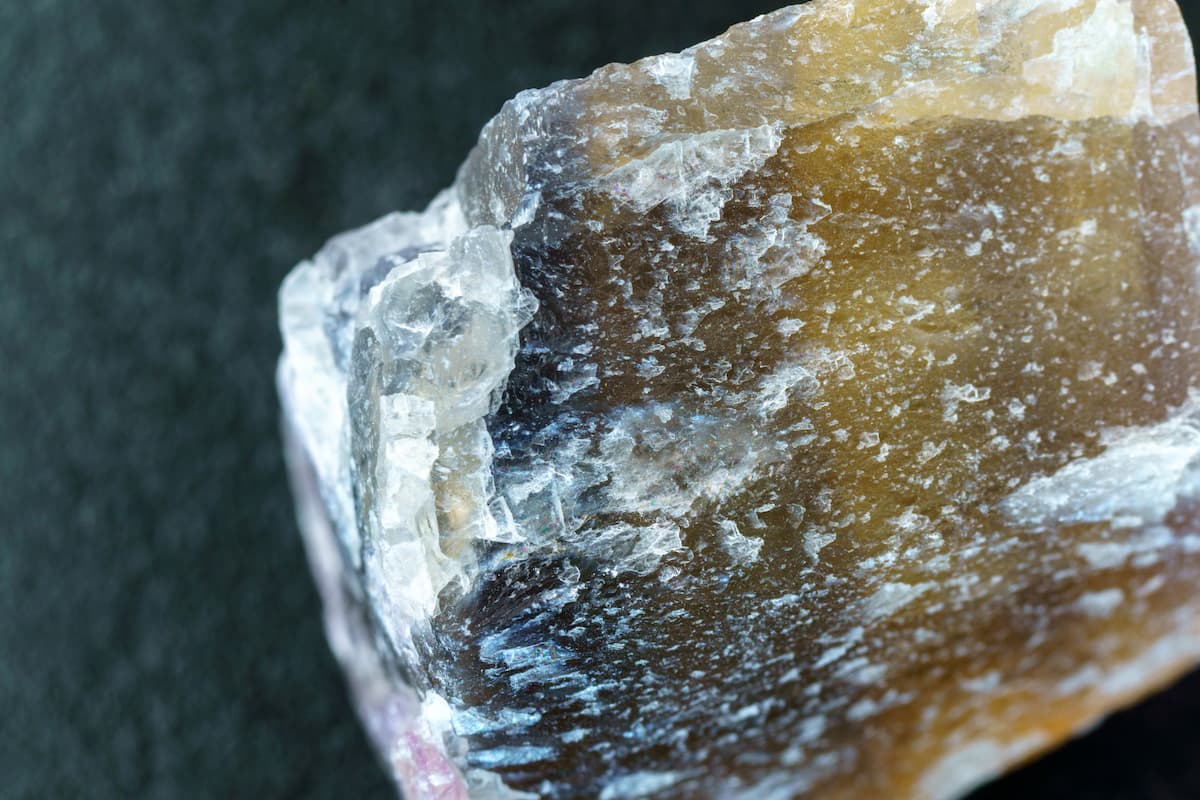
Fluoride is an essential mineral for the proper functioning of the body. How does it work and is it harmful? Check!
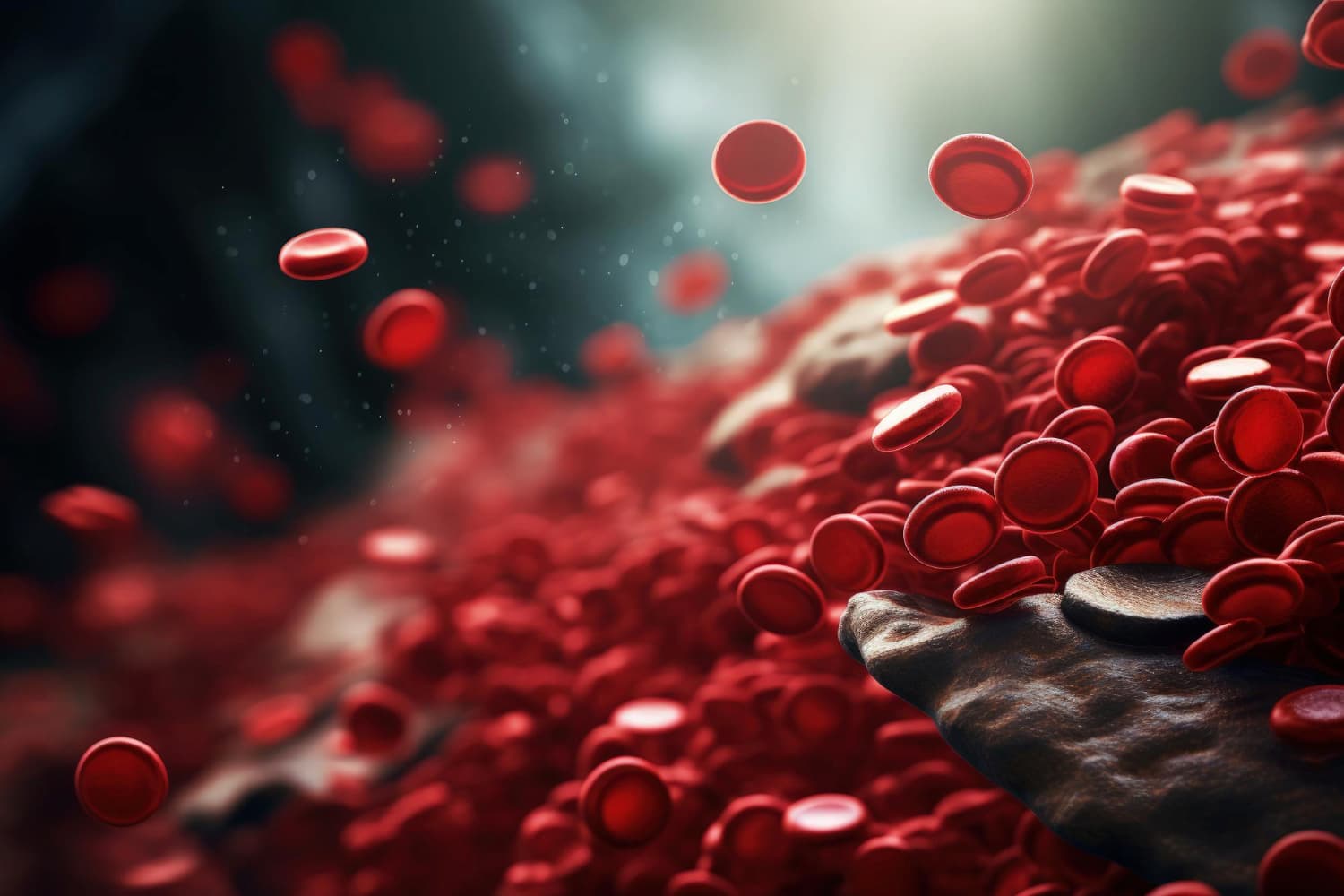
Iron deficiency is a dangerous condition leading to serious neurological and skin symptoms.

Phosphorus is a mineral element that supports bone health, nervous system function and also energy metabolism.
